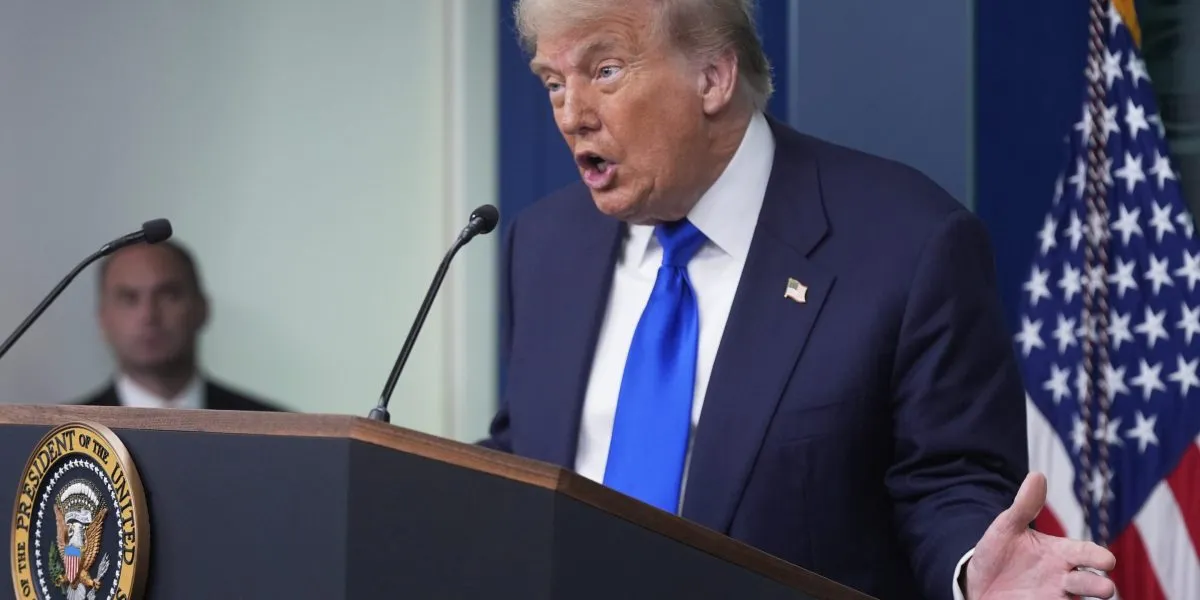
In a recent post on his social media platform, former President Donald Trump announced that Canada has confirmed its intention to proceed with the controversial digital services tax. This tax affects both Canadian and foreign businesses that engage with online users in Canada and is set to come into effect on Monday. In his statement, Trump declared, "Based on this egregious Tax, we are hereby terminating ALL discussions on Trade with Canada, effective immediately. We will let Canada know the Tariff that they will be paying to do business with the United States of America within the next seven day period."
Trump's announcement marks a significant escalation in the ongoing trade tensions between the U.S. and Canada, which have been marked by unpredictability since he took office for a second term in January. The digital services tax is particularly impactful as it imposes a 3% levy on revenue generated by companies like Amazon, Google, Meta, Uber, and Airbnb from Canadian users. Notably, this tax will apply retroactively, resulting in a staggering $2 billion U.S. bill for American companies due at the end of the month.
During an Oval Office meeting, Trump expressed his belief that the economic leverage the U.S. holds over Canada would compel the nation to reconsider the tax. "Economically we have such power over Canada. We’d rather not use it," he stated, adding, "It’s not going to work out well for Canada. They were foolish to do it." When pressed on whether Canada could take steps to restart trade discussions, Trump suggested that the removal of the tax would be a significant first step, though he added, "It doesn’t matter to me."
In response, Canadian Prime Minister Mark Carney emphasized that Canada would continue to engage in trade negotiations with a focus on the best interests of Canadians. Carney noted, "It’s a negotiation," highlighting the complexity of the discussions at hand.
The trade relationship between the U.S. and Canada has been a tumultuous journey, with Trump previously suggesting that Canada might be absorbed into the U.S. as a state. Following a visit from Carney to the White House in May, where he maintained a polite yet firm stance, trade discussions resumed. Notably, at the recent G7 summit held in Alberta, Carney indicated that both countries had established a 30-day deadline for further negotiations.
Trump's administration has been engaged in discussions to alleviate a series of steep tariffs imposed on Canadian goods, including a 50% tariff on steel and aluminum, as well as a 25% tariff on automobiles. Furthermore, a 10% tax on imports from most countries is currently in effect, with potential increases looming after the expiration of a 90-day negotiation period on July 9.
Canada and Mexico are also facing separate tariffs of up to 25%, instituted by Trump under the pretext of combating fentanyl smuggling. Despite these tariffs, certain products remain protected under the 2020 U.S.-Mexico-Canada Agreement, signed during Trump's first term.
During a private meeting with Republican senators, Treasury Secretary Scott Bessent refrained from commenting on the termination of trade talks, indicating the delicate nature of the situation. It is worth noting that approximately 60% of U.S. crude oil imports come from Canada, along with 85% of U.S. electricity imports. Canada also plays a critical role as the largest foreign supplier of steel, aluminum, and uranium to the U.S., possessing 34 critical minerals and metals of interest to the Pentagon.
Political science professor Daniel Beland of McGill University remarked that while the digital services tax is primarily a domestic issue for Canada, it has strained relations with the U.S. due to its focus on American tech giants. "The Digital Services Tax Act was signed into law a year ago, so the advent of this new tax has been known for a long time," he noted. "Yet, President Trump waited just before its implementation to create drama over it in the context of ongoing and highly uncertain trade negotiations between the two countries."